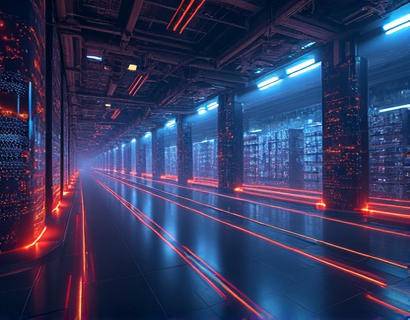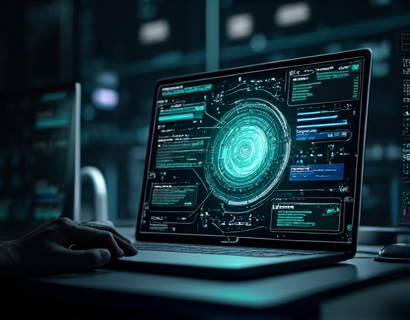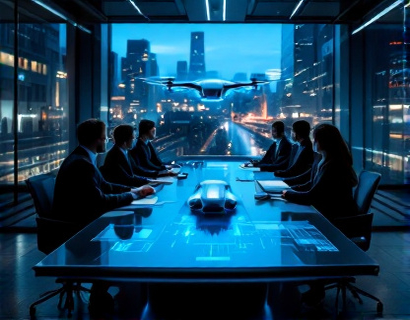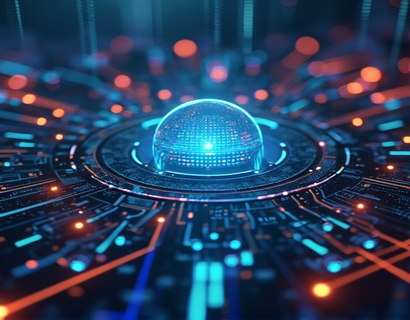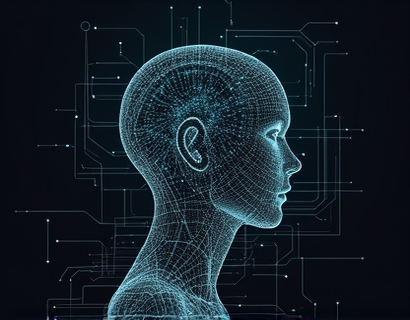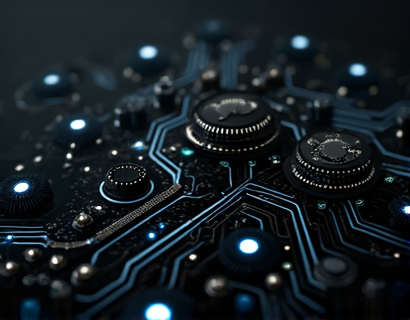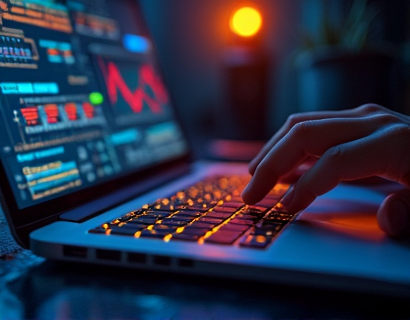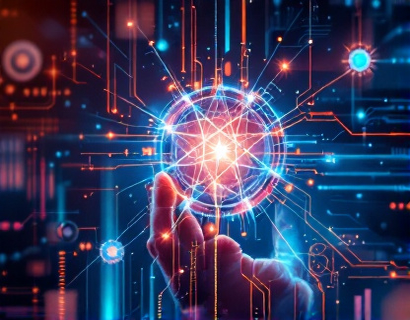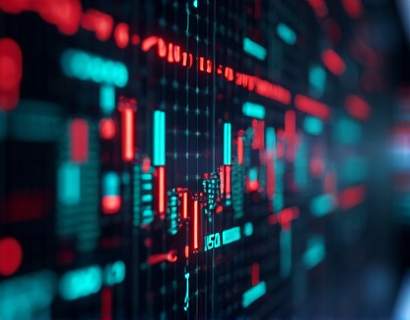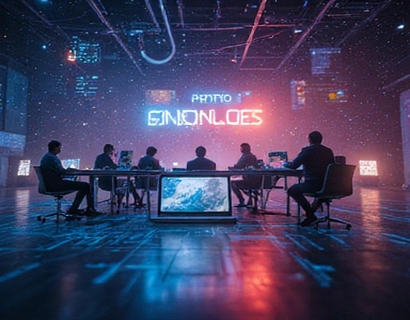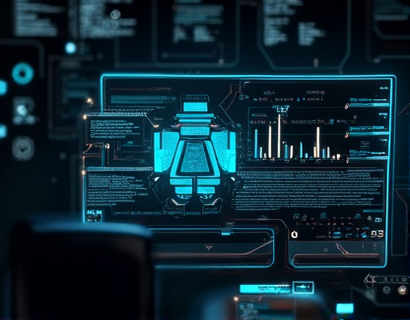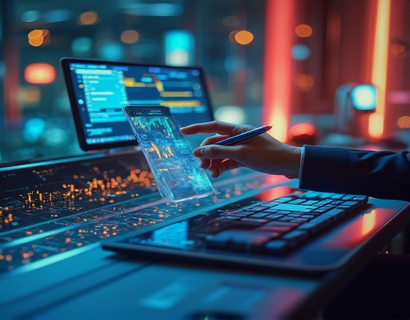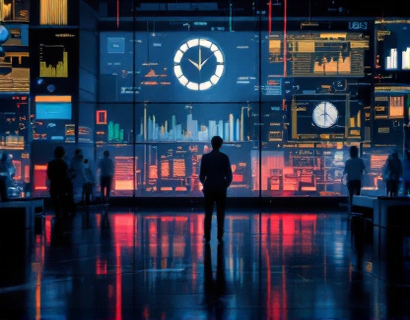Decentralized AI Meets Crypto: Unlocking the Future of Digital Transformation
The intersection of decentralized technologies and artificial intelligence is giving rise to a new era of digital transformation. This fusion, often referred to as Decentralized AI, is redefining how we approach innovation and service delivery in the digital space. By leveraging the strengths of both blockchain and AI, developers and businesses are unlocking unprecedented potential for secure, transparent, and efficient digital solutions. This article delves into the dynamics of this emerging field, focusing on how Decentralized AI, powered by cryptocurrency, is shaping the future of digital transformation.
Understanding Decentralized AI
Decentralized AI refers to AI systems that operate on decentralized networks, typically blockchain, rather than centralized servers. This approach brings several advantages, including enhanced security, transparency, and resilience against single points of failure. In a decentralized AI ecosystem, data and computations are distributed across multiple nodes, making it difficult for any single entity to manipulate or control the system. This decentralization is crucial for maintaining the integrity and trustworthiness of AI-driven applications.
The integration of AI with blockchain technology enables the creation of smart contracts that can automate complex decision-making processes. These smart contracts execute predefined actions when certain conditions are met, ensuring that transactions are transparent, immutable, and trustless. This synergy between AI and blockchain paves the way for innovative applications in various sectors, from finance and healthcare to supply chain management and beyond.
Cryptocurrency as a Catalyst
Cryptocurrency plays a pivotal role in the Decentralized AI ecosystem by serving as a medium of exchange and a means of incentivizing participation. Blockchain-based cryptocurrencies provide a secure and decentralized way to reward developers, data providers, and users for their contributions to the network. This incentivization mechanism is crucial for fostering a vibrant and active community, which is essential for the continuous improvement and evolution of Decentralized AI systems.
Moreover, cryptocurrencies enable microtransactions and pay-per-use models, which are particularly beneficial for AI applications that require access to vast amounts of data. By tokenizing data and computations, these systems can efficiently compensate participants for their resources, creating a sustainable and scalable ecosystem. This approach not only democratizes access to AI technologies but also ensures that the benefits of these advancements are widely distributed.
Ucosystem Innovations: A Closer Look
Ucosystem innovations represent a cutting-edge approach to building decentralized AI-powered applications and services. These innovations leverage the unique properties of blockchain and AI to create robust, secure, and user-friendly digital solutions. One of the key aspects of Ucosystem innovations is their ability to integrate multiple decentralized services into a cohesive and seamless user experience.
For instance, a decentralized AI-driven platform can utilize blockchain to manage user identities, ensuring privacy and control over personal data. Smart contracts can automate data sharing agreements, ensuring that data providers are fairly compensated while maintaining the integrity of the data. Additionally, AI algorithms can analyze and process the aggregated data to provide valuable insights and predictions, all while operating on a decentralized network.
Key Components of Ucosystem Innovations
1. Decentralized Identity Management: Ucosystem innovations often incorporate decentralized identity solutions, allowing users to control their digital identities without relying on centralized authorities. This not only enhances privacy but also reduces the risk of identity theft and fraud.
2. Tokenized Incentives: By using cryptocurrencies to incentivize participation, Ucosystem innovations create a self-sustaining ecosystem where contributors are rewarded for their efforts. This model encourages active engagement and continuous improvement of the platform.
3. Smart Contract Automation: Smart contracts are at the core of Ucosystem innovations, automating various processes such as data sharing, transaction execution, and reward distribution. This automation reduces the need for intermediaries, lowering costs and increasing efficiency.
4. AI-Driven Insights: The integration of AI algorithms enables Ucosystem innovations to process and analyze large datasets, extracting meaningful insights and patterns. These insights can be used to improve services, optimize operations, and provide personalized experiences to users.
Unleashing the Potential of Crypto and AI
The combination of cryptocurrency and AI in a decentralized ecosystem unlocks a multitude of possibilities for next-generation digital solutions. One of the most significant benefits is the enhancement of trust and transparency. Blockchain's immutable ledger ensures that all transactions and interactions are recorded and verifiable, reducing the risk of fraud and increasing user confidence.
Another advantage is the improved scalability and performance. Decentralized AI systems can distribute computational tasks across a network of nodes, leveraging the collective power of the network to handle complex computations efficiently. This distributed approach not only enhances performance but also makes the system more resilient to attacks and failures.
Furthermore, the decentralized nature of these systems promotes innovation and collaboration. Developers and researchers can build upon existing protocols and frameworks, fostering a culture of open-source development and shared knowledge. This collaborative environment accelerates the pace of innovation, leading to more advanced and versatile digital solutions.
Real-World Applications
The potential applications of Decentralized AI are vast and varied. In the financial sector, decentralized AI can enhance fraud detection and risk management by analyzing transaction patterns and identifying anomalies in real-time. In healthcare, AI-powered diagnostic tools can process medical data from multiple sources, providing accurate and timely insights to healthcare professionals.
In supply chain management, decentralized AI can optimize logistics and inventory management by tracking products from origin to destination, ensuring transparency and efficiency. These applications demonstrate the transformative impact of Decentralized AI across different industries, driving efficiency, security, and innovation.
Challenges and Considerations
While the potential of Decentralized AI is immense, there are several challenges and considerations that need to be addressed. One of the primary challenges is the scalability of blockchain networks. Current blockchain technologies often face limitations in terms of transaction throughput and processing speed, which can hinder the performance of AI applications that require real-time data processing.
Another challenge is the regulatory landscape. The intersection of cryptocurrency and AI operates in a relatively uncharted legal territory, and regulatory frameworks are still evolving. Ensuring compliance with existing laws and advocating for supportive regulations is crucial for the widespread adoption of Decentralized AI solutions.
Additionally, there is a need for standardization and interoperability among different blockchain platforms and AI frameworks. Without standardized protocols, integrating diverse components into a cohesive ecosystem can be complex and resource-intensive. Efforts to develop open standards and interoperability solutions are essential for the growth of the Decentralized AI ecosystem.
Future Outlook
The future of Decentralized AI is promising, with ongoing advancements in both blockchain and AI technologies paving the way for more sophisticated and capable systems. As research and development continue, we can expect to see improvements in scalability, security, and efficiency. The integration of emerging technologies such as quantum computing and advanced machine learning algorithms will further enhance the capabilities of Decentralized AI.
Moreover, the growing awareness and adoption of decentralized technologies among businesses and individuals will drive demand for innovative Decentralized AI solutions. As more organizations recognize the benefits of decentralization and AI, the ecosystem will continue to expand, fostering a rich environment for collaboration and innovation.
In conclusion, the convergence of Decentralized AI and cryptocurrency represents a revolutionary force in the digital landscape. By harnessing the power of blockchain and AI, we can create more secure, transparent, and efficient digital solutions that transform various industries and enhance user experiences. The journey ahead is exciting, and the potential for positive impact is vast.




